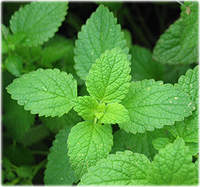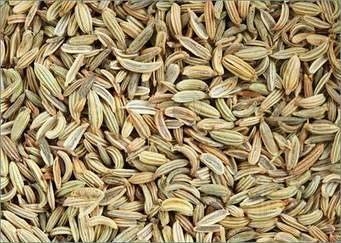Experts approximate that 50 to 90 percent of women suffer from morning sickness (nausea and vomiting) during pregnancy. But besides happening in the morning, you may experience vomiting and nausea at other times during the day. This can cause a lot of discomfort and make you wonder what to eat after vomiting that won’t come out soon afterwards. In this discussion, we look at the types of food to eat and those to avoid so as to reduce the risk of immediate nausea or vomiting.

What to Eat After Vomiting During Pregnancy
Soup

Eating soup can help your stomach to settle so that you don’t vomit or feel nauseated. Additionally, soup or broth will replenish the fluids lost due to vomiting so that you don’t get dehydrated. But opt for a bland soup that is neither creamy nor spicy which may otherwise lead to throwing up. Chicken soup or broth is recommended by pregnancy associations as good choices during pregnancy.
Fruit

Fruits such as lemon are great to eat to eat morning sickness. Fruits are also rich in important nutrients that are necessary for your health and that of the baby growing inside of you. According to experts, even smelling or sucking on a lemon wedge may be all it takes to calm nausea. Other recommended fruits include apples and bananas among others.
Crackers

What to eat after vomiting during pregnancy? Many women are fond of crackers during pregnancy for good reason. Crackers are great at helping the stomach to settle so that vomiting does not occur soon. Some doctors recommend that you keep some soda crackers at your bedside so that you eat some upon waking up to reduce your chances of morning sickness. Eating crackers throughout the day can also keep nausea and vomiting episodes at a minimum.
Ginger

Ginger tea has been used through the ages for soothing the stomach and treat nausea. Ginger ale also helps rehydrate the body. Pregnancy associations point out that other drinks and foods containing ginger including ginger cookies and ginger jam may also be helpful.
Peppermint

Peppermint herb is another item of what to eat after vomiting during pregnancy. It helps reduce the occurrence of morning sickness by calming the stomach.
- Boil one cup of water, add one teaspoon dried peppermint and cover. Leave it to brew for 5 - 10 minutes, strain, add honey or sugar and drink soon after you wake up.
- Alternatively, place two to four drops peppermint oil onto your handkerchief. Bring it to your nostrils and breathe it in any time you feel nauseated.
Note that for some women, the smell of peppermint can cause nausea. If you are one of them, avoid peppermint.
Fennel

Fennel seeds can also help treat nausea and vomiting during pregnancy. Fennel relaxes the lining within the digestive tract, thereby improving digestion. This calms down the nauseated sensation.
- If you get morning sickness and wonder what to eat after vomiting, have some fennel seeds at your bedside so that you can chew on some any time you feel nauseated.
- Alternatively put one teaspoon fennel seeds into a cup of hot water, cover to steep for 10 minutes, strain, add honey or lemon juice. Sip on it when you wake up.
Vitamin B6
It is not known how it works; however, vitamin B6 helps to ease vomiting and nausea in pregnant women. Vitamin B6 is safe for both the expectant woman and her unborn baby.
- Typical dose of vitamin B6 for morning sickness is 25 mg taken three times per day. It makes sense to consult your healthcare provider about taking B6 as a remedy for morning sickness.
- Note that eating a balanced diet rich in vitamin B6 can reduce the risk of nausea and vomiting in pregnancy. Foods like fish, avocadoes, bananas, corn, brown rice and nuts are high in vitamin B6.
More Foods to Eat
Following are more foods that will help:
- Yogurt especially when combined with fresh fruits reduces the sensations of nausea. Yogurt is also rich in vitamin B12.
- Taking ice cream, especially when vanilla or strawberry flavored can help settle your stomach and reduce the occurrence of morning sickness.
- Eating carbohydrate after vomiting is important to provide your body with energy. Cheese or pasta can work perfectly.
- Boiled vegetables such as spinach, broccoli, and asparagus will help reduce nausea. Besides, these veggies are rich in folic acid which is necessary for the healthy growth of your unborn baby.
More Ways to Deal with Vomiting During Pregnancy
Split Your Daily Food Intake into Many Small Meals
This can reduce the occurrence of nausea. Large meals and going for long periods without food can lead to nausea and vomiting. Always eat before you feel hunger pangs and avoid overeating.
Avoid Foods That May Trigger Nausea
In thinking about what to eat after vomiting during pregnancy, you need to avoid foods that may trigger nausea. These are different for different people and you will need to find out your culprit foods in order to avoid them.
Typical foods that trigger nausea include: spices, fatty foods, foods with strong odor and those which don’t look appealing. Keep away from alcohol when you are pregnant as it can increase nausea besides causing defects to your baby.
Drink Lots of Water
Experts recommend that you take not less than 1 ½ quarts of water every day so that you remain well hydrated and stem vomiting.
- Keep sipping on water through the day. You may find that carbonated water works better for you than plain water.
- Do not start the day with a drink of water. Instead keep saltines by your bedside and nibble on them when you wake up. Wait for about 30 minutes before taking any water.
Take Prenatal Vitamins with Food and Water
Your nausea could be the result of your prenatal vitamins in your stomach. To manage this, take your vitamins together with food or water.
Prenatal vitamins may contain high amounts of vitamin B6 to help reduce nausea. However, you may need to talk to your doctor if you still get nausea even when you take your prenatal vitamins with food.
Get Adequate Sleep
You need to sleep for an average of eight hours every night to rest adequately. Otherwise, your body will get exhausted and weak which can lead to nausea.
Avoid Stress
Whenever you have excess stress, you end up having excess stomach acid. This can cause the nauseated feeling and lead to vomiting. During pregnancy, regularly take time to relax and keep away from stress triggers.
- In case your nausea is extreme, you may need to take time off to relax.
- You can also try meditation, prenatal yoga, meditation, a warm bath or aromatherapy for stress reduction.
Try Acupressure
Acupressure is a treatment method that involves application of pressure on pressure points in various parts of the body. This stimulates flow of more blood to the respective areas of the body which can relieve the nausea feeling. You can opt for either traditional acupressure or acupressure wristbands which you can get from drugstores without prescription.
